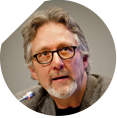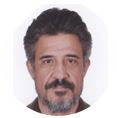CHAIR
 Martin W. Bauer, London School of Economics and Political Science (LSE), United Kingdom
Martin W. Bauer, London School of Economics and Political Science (LSE), United Kingdom
Martin W. Bauer read Psychology and Economic History (Bern, Zurich, London), and is Professor of Social Psychology (LSE). He was Editor-in-Chief of Public Understanding of Science (2009-2016), and he currently investigating ‘common sense’ in comparative perspective and in relation to novel techno-scientific developments. Recent books include: (2015) Atom, Bytes & Genes – Public Resistance and Techno-Scientific Responses, NY, Routledge; (2019) The Cultural Authority of Science – Comparing across Europe, Asia, Africa and the Americas, London, Routledge.
MEMBERS
 Clotilde Boulanger, Université de Lorraine, France
Clotilde Boulanger, Université de Lorraine, France
Clotilde Boulanger obtained her PhD in Chemistry and Electrochemistry University of Nancy I in 1987, and has an accreditation to supervise Research in Electrochemistry and Materials Sciences since 1998. She held a position as an engineer at Sollac Research and development Center from 1988 to 1989. Shewas associate Professor in the department of Chemistry at the University of Metz in 1989, and is a full Professor since 2001 in University of Lorraine at Institut Jean Lamour.
Her research topics include Synthesis, Processing, Structuration of materials by electrochemistry (electroplating of films and nanowires of semiconductor), and intercalation reactions of metallic ions into host lattices (synthesis of metastable compounds, electrochemical transfers and recovery of metals, electrochromic layers).
Clotilde Boulanger is author or co-author of 80 journal articles, 1 book chapter, 20 conference proceedings, 14 Invited presentations at Conferences, 14 invited Seminars and Colloquia,200 communications in congress and seminars, and 8 patents. She has been involved in 40 actions of science popularization, and has supervized 18 Candidates awarded Ph.D. degrees and 15 master's students. Clotilde Bounager is Vice President of Doctoral Strategy of Université de Lorraine since 2017.
 Laurence Canteri, Université de Lorraine, France
Laurence Canteri, Université de Lorraine, France
Laurence Canteri earned a PhD from the Institut National Polytechnique de Lorraine in Mechanics and Energetics in 1996. From the start of her career, as a Lecturer at the Université Henri Poincaré, Nancy 1, She has worked for the dissemination of the SciComm by organizing various events for different audiences and especially schools.
Vice-president of the University Life Council at the Université de Lorraine since June 2017, she deals with questions relating to cultural policy and questions of research and society, sports practices, associative life, social action, health policy, disability, recognition of student engagement and relationships with institutional partners of university life.
 Michel Claessens, ITER, European Commission, Belgium
Michel Claessens, ITER, European Commission, Belgium
Michel Claessens holds a PhD in science from Brussels’ University. He joined the European Commission in 1994, where has been acting Head of the Communication Unit in the Research Directorate-General, spokesperson for the EU Commissioner for Research, editor-in-chief and responsible for the science and technology Eurobarometers until 2010. In April 2011, Michel was seconded as Head of Communication and External Relations at the ITER Organization in Cadarache (France).
In parallel, Michel teaches science journalism and science communication at the University of Brussels.
His numerous publications include scientific articles in peer-reviewed journals, books on science policy and science communication, press articles and television programmes. His latest book, ITER, The Giant Fusion Reactor has just been published by Springer.
A specialist of science communication, Michel Claessens is an active member of international networks on science communication (PCST, ESOF, etc.) and a frequent speaker at international conferences (Chinese Association for Science Communication, AAAS, TEDx, etc.). He is currently developing an international project on science culture.
 Fabienne Crettaz von Roten, Faculty of social and political sciences of the University of Lausanne, Switzerland
Fabienne Crettaz von Roten, Faculty of social and political sciences of the University of Lausanne, Switzerland
Fabienne Crettaz Von Roten studied mathematics (PhD in statistics) at the Federal Institute of Technology of Lausanne and is Professor of Statistics at the Faculty of social and political sciences of the University of Lausanne. She heads the « Science and Society Relations " axis of the Science, Politics and Society Observatory. Her research offers a symmetrical view of the relationship: public attitudes towards science and scientists' commitment to society.
She is the author of numerous book chapters and articles in journals such as Public Understanding of Science and Science Communication on the subject. Her most recent publications include « Factors influencing scientists’ public engagement » (Encyclopedia of international higher education systems and institutions, Springer, 2017), « Animal Experimentation: Analysis of the controversy from 1950 to the present in Switzerland » (Alphil, 2019); « Communicating science and technology in society - Issues of public accountability and engagement » (Springer, 2020; with A. Delicado and K. Pripic.)
 Marta Entradas, ISCTE - ISCTE-University Institute of Lisbon, Portugal
Marta Entradas, ISCTE - ISCTE-University Institute of Lisbon, Portugal
Marta Entradas is Principal Investigator at ISCTE-University Institute of Lisbon and visiting scholar at the London School of Economics and Political Science (LSE). She is currently the lead researcher for the ongoing grant projects ‘MORE-PE: Mobilising Resources for Public Engagement’, and OPEN 'Organisational Public Engagement with Science and Technology', funded by the Foundation for Science and Technology (FCT).
In 2011, she completed her PhD in STS (Science and Technology Studies) at University College London (UCL). She was Marie Curie Fellow at LSE in 2016-18 and Fulbright Scholar at Cornell University in 2015/16. In 2016, she was awarded the 'European Young Researcher Award' by Euroscience.
Her research interests lie in science communication, public understanding of science, science policy and research methods for social sciences.
 Bankole Falade, Centre for Research on Evaluation, Science and Technology - CREST, Stellenbosch University, South Africa
Bankole Falade, Centre for Research on Evaluation, Science and Technology - CREST, Stellenbosch University, South Africa
Bankole Falade is a biologist, journalist and social psychologist with teaching and research interests in science and health communication; science, religion and public life; media and communications studies, text mining and survey research. His approach to science communication is multidisciplinary, drawing on theories from sociology, psychology and media studies. He has published articles under the broad themes of public understanding of science, science communication, health communication and media informatics, trust and confidence in institutions, resistance to vaccines and the roles of religion, traditions, rumours and conspiracy theories in the uptake of science information in Africa.
He is, at present, a full time Research Fellow with the South African Research Chair in Science Communication, Centre for Research on Evaluation, Science and Technology (CREST), Stellenbosch University, South Africa. He is also the data editor of the Cultures of Science Journal of the National Academy of Innovation Strategy, China Association for Science and Technology as well as serving on the advisory board of the International Research Network of the Centre for Science Knowledge and Belief in Society based in Newman University, United Kingdom.
He was a research Fellow at the Department of Psychological and Behavioural Sciences, London School of Economics and Political Science (LSE) 2014 to 2015. Following LSE, he was at the University of Bielefeld, Germany as a post-doctoral researcher on the MACAS project – Mapping the Cultural Authority of Science (www.macas-project.com) funded by the ESRC (UK), DFG (Germany) and ISSRC (India).
 Jean-Baptiste Gouyon, University College London (UCL), United Kingdom
Jean-Baptiste Gouyon, University College London (UCL), United Kingdom
Jean-Baptiste Gouyon is an Associate Professor in Science Communication at the department of Science and Technology Studies (STS) of University College London (UCL). A historian of science, his research is on the history of the presentation of the sciences in visual media (TV, film, museum) in twentieth-century Britain. Besides his work on the history of wildlife television in Britain (he is the author of BBC Wildlife Documentaries in the Age of Attenborough [Palgrave, 2019]), Gouyon publishes on the history of science on TV, and on the history of the Science Museum.
Gouyon holds a maitrise (MSci) in Cell Biology (University of Versailles, 1998), a DEA (MPhil) in Epistemology and History of science and Technology (University of Paris 7, 2000) and PhD in Sociology (University of York, 2009). He was a post-doctoral fellow at the Max Planck Institute for the History of science in Berlin, the University of Kent and the Science Museum, in London. Before working in Academia, Gouyon worked for a few years as a science journalist.
 Jürgen Hampel, Stuttgart University, Germany
Jürgen Hampel, Stuttgart University, Germany
Jürgen Hampel is senior lecturer at the Department of Sociology of Technology and Environment at the University of Stuttgart. He has studied Sociology and Psychology at the University of Mannheim and made his PhD at the Free University of Berlin. His research focuses on public perception of science and technology and societal controversies about science and technology. His research includes numerous Eurobarometer-Surveys on the perception of science and technology and in particular the perception of biotechnology and the TechnikRadar, which includes a biannual survey on perception of emerging technologies. Jürgen Hampel is a member of the Interdisciplinary Research Group Gene Technology Report of the Berlin-Brandenburg Academy of Science.
 Edwige Helmer-Laurent: Central-East delegation, CNRS, France
Edwige Helmer-Laurent: Central-East delegation, CNRS, France
With a PhD in economic science from the Université de Franche-Comté, Edwige Helmer-Laurent began her career at Université Nancy 2 in 2003. In 2012, with the creation of the Université de Lorraine, she has been tasked the responsibility to establish the Direction of Research and Development, which she led for 2 years. She then became Deputy General Director of the University in charge of Strategic Projects (2013 – 2017). Since 2017, she was Director of Office for the President of the Université de Lorraine Pierre Mutzenhardt.
She is now Representative for the Center-East region of the National Centre of Scientific Research - CNRS, where she carries the representation of the organisation on its various sites (Lorraine, Champagne-Ardenne, Bourgogne, Franche-Comté). She also handles the development of CNRS’ strategy in the region and the support of its different units.
She is committed to the science/society dialogue, which results in national CNRS’ measures, as well as local expertise shared with academic partners.
Thanks to her career in Higher Education and Research, Edwige Helmer-Laurent has a profound knowledge of the scientific field, research policies and partnership relations.
 Liu Xuan, National Academy of Innovation Strategy, China Association for Science and Technology (CAST), China
Liu Xuan, National Academy of Innovation Strategy, China Association for Science and Technology (CAST), China
Liu Xuan, Associate Research Fellow of National Academy of Innovation Strategy, China Association for Science and Technology (CAST). She has received a Ph.D. degree from the University of Science and Technology of China, during her Ph.D study she was also a visiting Ph.D student in London School of Economics and Political Science (LSE). She has presided as Project Head or participated in more than 30 international cooperation projects, national research projects, and ministerial-level and provincial ones. She published more than 40 journal papers, conference papers and research reports in both English and Chinese as the first or corresponding author. From 2014 to 2018, she has served as a member of the Scientific Committee of Public Communication of Science and Technology (PCST) and been invited to be keynote speaker in important international academic conferences along with more than ten academic reports presented. Her main research interests are scientific culture study, study of public engagement with science, study of innovation environment and ecology.
 Lionel Maillot, Université de Bourgogne, France
Lionel Maillot, Université de Bourgogne, France
Dr. Lionel Maillot is the Manager of the Experimentarium Network in France. This program offers communication training for PhD students and researchers and organizes more than 1000 meetings per year between the general public and researchers since 2001 (see http://www.experimentarium.fr). He is also the Scientific Manager of the French branch of the European Researchers Night since 2003 and holds an Adjunct Researcher position in Science Communication with the CIMEOS department at the “Université de Bourgogne”, France.
His work focuses on scientific public engagement. Dr. Maillot is particularly interested in the processes (situations, factors, paths…) which lead researchers to meet and communicate with the general public. He also has devoted a significant part of his thesis (defended in 2018) to the effects of these communication practices on the researcher himself and analyzed situations that proved beneficial for the PhD students through a dynamic of reassurance, renewed motivation for their research, etc.
 Luisa Massarani, House of Oswaldo Cruz, Fondation Oswaldo Cruz, Brazil
Luisa Massarani, House of Oswaldo Cruz, Fondation Oswaldo Cruz, Brazil
Luisa Massarani is a Brazilian science communicator, who carries out both practical and research activities in the field. She is the coordinator of the National Brazilian Institute of Public Communication of Science and Technology and of the master on Science Communication at House of Oswaldo Cruz/Fiocruz (Brazil). She is also the coordinator for Latin American of SciDev.Net (www.scidev.net). Recipient of the Mercosur Award for Science and Technology (2014), the Brazilian Award for Science Communication (2016) and the Literature Jabuti Award (2017).
 Yoslan Nur, UNESCO
Yoslan Nur, UNESCO
Dr Nur is a UNESCO Programme Specialist working at the Division of Science Policy and Capacity Building, Natural Sciences Sector. He holds a Masters and Ph.D. in urban and regional development and an engineering degree in urban planning. He joined UNESCO in 1999. He has built a strong record in leading, conceptualizing and monitoring programme activities in the field of science, technology and innovation (STI) policy, including promoting a culture of innovation, popularization of science, facilitating South-South cooperation, and STI assessment and monitoring, in view to use science for sustainable development to implement the 2030 Agenda.
In his capacity as the UNESCO focal point for the popularization of science, he has been providing technical assistance and organizing capacity building activities on the development of science centres and science museums, supporting activities related to the promotion of public awareness on science and technology, facilitating research and scientific debate on the history of science, coordinating UNESCO prizes in science, managing the UNESCO Kalinga Prize for the Popularization of Science, organizing and supporting STI exhibitions. He has been very actively supporting the regional and international networks of science communication and sciences centres and science museums.
 Bernard Schiele, Université du Québec à Montréal, Canada
Bernard Schiele, Université du Québec à Montréal, Canada
Bernard Schiele, PhD, is a Professor of Communications in the Faculty of Communication at the University of Quebec at Montreal (Canada). He teaches and lectures frequently in North America, Europe and Asia, and has been working for a number of years on the socio-dissemination of S&T. He is a member of several national and international committees and is a regular consultant on scientific culture matters to government bodies and public organizations.
At present he is the co-editor in chief with Ren Fujun (NAIS) of the new journal Cultures of Science. He is also a founding member and current member of the Scientific Committee of the PCST network. He chaired the International Scientific Advisory Committee for the New China Science and Technology Museum (2006–2009), and chaired the Scientific Committee of the Journées Hubert Curien 2012 (Nancy, France) (2011–2012). He also chaired the scientific committee of the Science and You Conference 2018 (Beijing, China).
He was a member of the Expert Panel on the State of Canada’s Science Culture (2013–2014), which published Science culture: Where Canada stands (Council of Canadian Academies, 2014). Among other books he has recently published as a co-editor are At the human scale: International practices in science communication (Beijing University Press, 2006); Communicating science in social contexts: New models, new practices (Springer, 2008); Science communication in the world: Practices, theories and trends (Springer, 2012); Science communication today: International perspectives, issues and strategies (CNRS, 2013); and Les Musées et leurs publics: Savoirs et enjeux [Museums and their visitors: Knowledge and challenges] (PUQ, 2014); with Joëlle Le Marec and Patrick Baranger he has coedited Science Communication Today – 2015, and has coedited with Joëlle Le Marec a small booklet Cultures of Science (ACFAS, 2018) following a seminar on science communication held in Montreal in 2017, and recently coedited with Joëlle Le Marec and Jason Luckerhoff Musées, Mutations… [Museums, Mutations] (OCIM 2019).
 Ahmet Suerdem, University Bilgi Istanbul, Turkey
Ahmet Suerdem, University Bilgi Istanbul, Turkey
Ahmet Suerdem, PhD, is a Professor in Business Administration Faculty at Istanbul Bilgi University. He is also a Senior Academic visitor at LSE Psychological and Behavioural Sciences department. He has received his doctorate from Paris 8 University on Educational Sciences-Institutional Analysis. He was a European Council Post-Doc fellow at Paris 5, Social Anthropology dept. and Visiting Research Fellow at the UCLA and UCI, Marketing departments. He was involved in several International and National projects as a Director and Researcher. His areas of expertise include science in society, science culture, public understanding of science, text mining, content analysis, social network analysis, multivariate statistical analysis, bridging qualitative and quantitative research methods; consumer culture, social aspects of system design. He is an expert in many statistical and qualitative data analysis software and coding and analytics tools such as R, Python and KNIME.
 Mikihito Tanaka, Waseda University, Japan
Mikihito Tanaka, Waseda University, Japan
Mikihito Tanaka is Associate Professor of Science and Media Studies in the Journalism Course at the Graduate School of Political Science, Waseda University, Japan. He earned his Ph.D. in Life Scinece from the University of Tokyo, and has more than 10 years of experience as a journalist. Currently, he carries out research related to issues between science and society, mass/social media, and science journalism with using both qualitative (e.g. critical discourse analysis) and quantitative (e.g. content analysis, social network analysis, natural language processing) methods. He is a founding member and research manager of the Science Media Centre of Japan (SMCJ). In 2011, his work with the SMCJ team was highly acclaimed for their service to the public in providing evidence-based scientific information during the triple disasters —earthquake, tsunami and Fukushima Daiichi nuclear accident — and received an award from the National Institute of Science and Technology Policy.His recent publication is “Traces of Fukushima: Global Events, Networked Media and Circulating Emotions” (Palgrave, 2019).
